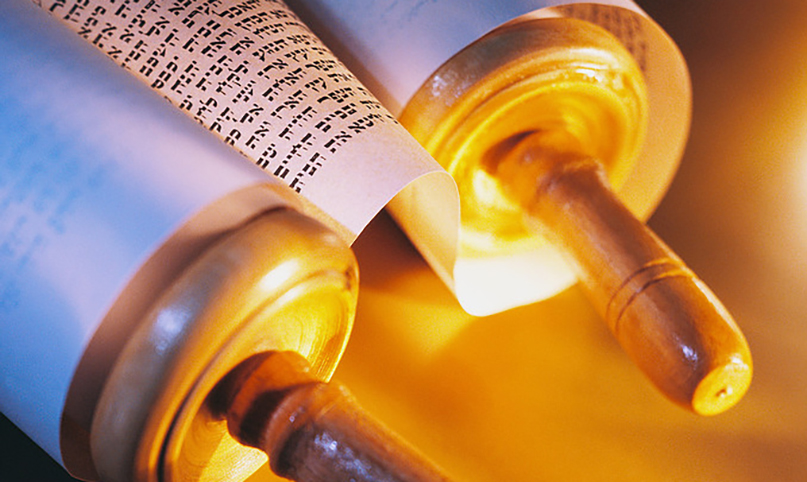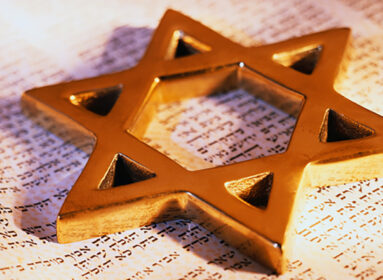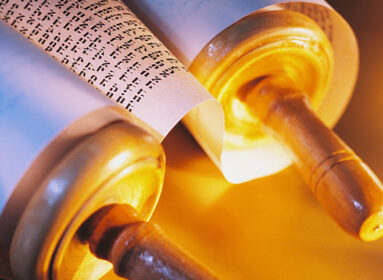
By Shlomo Riskin
W
hat is the most crucial vehicle for the transmission of our Jewish faith and traditions? Is it the synagogue, the study hall, the Jewish community center, the charitable organizations or none of the above? Let us study the details of two of the major accoutrements of the Desert Sanctuary and perhaps we will discover the answer to our question.
The Sanctuary menorah described in this week’s Torah reading had the shape of a golden tree, whose trunk extended into six branches, three on each side, replete with stems and flowers (Ex. 25:31-40). It was a tree, which shed light.
The ark was the repository for the tablets of stone, which contained the Ten Commandments. A golden cover (Kaporet or Parokhet) was placed over and above the ark, from which two cherubs were hammered out on either side. Rashi cites the Midrash: “They had the form of the face of a young child” (B.T. Sukkah 5b). The cherubs were formed to be looking at each other, and the Almighty communicated with Moses from between the two cherubs (Ex. 25:10-30).
The Sages described the special qualities of these cherubs, and the way in which our Gentile captors viewed these images:
Rav Katina said, “When the Israelites would ascend to Jerusalem during the three Pilgrim Festivals, the (Temple custodians) would show them the cherubs, who were embracing each other. They would say to the pilgrims, See how your love before the Almighty should be as the love of a man for a woman.” Said Resh Lakish, “when the destruction (of the Temple) came about, the Gentiles entered (the sacred shrine) and said: ‘These Jews, whose blessing is a blessing and whose curse is a curse, are involved in such a sculpture?’ They derided the Israelites, citing the verse, ‘All who (formerly) respected her, came to mock her, because they saw her nakedness’ And what was her nakedness? The cherubs, embracing each other!” (B.T. Yoma 54a).
Why did our Holy Temple feature sculptures like the cherubs-in-embrace, which allowed the Romans to revile Israel as worshipping their God through pornography?
We have seen that the menorah is a golden tree, symbolically reminiscent of the Tree of Life in the Garden of Eden. The first couple was banished from the primordial Garden of Perfection, and humanity prevented from eating of the tree of eternal life, because Adam and Eve sinned by partaking of the fruit of knowledge of good and evil. Our major commentator, Rashi, suggests that the forbidden fruit injected within the human personality what Sigmund Freud would call the libido, substituting lust for love, illicit passion for sexual purity. That is original sin. The ultimate goal of Torah – also referred to as a ”tree of life” in the Biblical Book of Proverbs as well as in our liturgy – is to re-fashion our imperfect world into the Garden of Eden, to enable a perfected humanity to finally eat the fruit of the tree of eternal life. According to Rashi’s interpretation, this ultimate feat can only be achieved when sexual purity will be restored, when familial love rather than extra-marital lust will be normative human behavior. Then we will have done penance for the sin, which caused our existential exile in the first place.
The Roman conquerors missed the point of the cherub symbolism. Our Sages insist that “they had the form of the face of a young child,” symbolizing purity, innocence, and whole-heartedness. The physical embrace of such male-female winged beings – with the pure faces of children – express love without lust, sexual unity which enhances family rather than sexual depravity which destroys family.
Our religious tradition holds great store in the importance and ultimate potential of family as the matrix from which a perfected society will one day emerge – and therefore our Sabbath, festival, life-cycle and family purity rituals laws and customs, all aim to protect, strengthen and deepen the most positive family ties and relationships.
Dysfunctional family – Adam and Eve blaming each other for their own weaknesses – produces the first murder (Cain and Abel); unified family – when the hearts of the parents turn to the children, and the hearts of the children to the parents – will herald national and world redemption. Family depraved banished humanity from Eden; family redeemed will return us to Eden and the tree of life.
The sacred objects of the desert Sanctuary teach us that the most important vehicle for the transmission of our tradition is the family. Only by nurturing family purity and unity will we succeed in protecting Torah and properly utilizing it to perfect all of society.







 Southern New England Jewish Ledger
Southern New England Jewish Ledger













